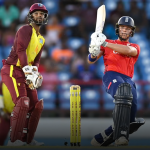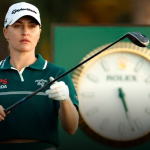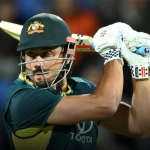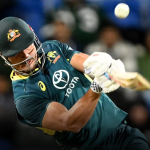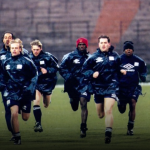ITN report on Cheltenham horse deaths criticised by racing’s rulers
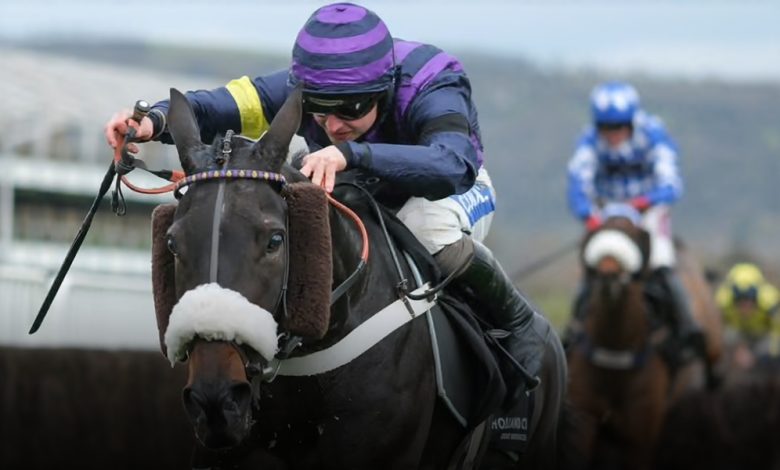
The deaths of three horses in less than an hour at Cheltenham on Sunday, including Abuffalosoldier, who collapsed as ITV Racing’s reporter in the pull-up area was concluding a post-victory interview with his jockey, brought the track’s November meeting to a miserable conclusion after two days that were full of positivity and promise for the winter campaign ahead.
The loss of Bangers And Cash, Abuffalosoldier and Napper Tandy in races being shown live on the main ITV channel also highlighted the occasional but inevitably harsh reality of racing, and jump racing in particular, to an audience with little or no interest in the sport, as ITN covered “the triple-tragedy at Cheltenham” as an item on their main evening bulletin.
The item was trailed at the top of the programme, which will have inherited a decent chunk of the millions who tuned in for the opening episode of this year’s I’m A Celebrity, Get Me Out Of Here. “The winning horse that died just minutes after clinching victory,” Shehab Khan, the presenter, said over footage of Abuffalosoldier’s victory. “Now campaigners call for a complete ban on racing.”
The campaigner concerned was Rose Patterson, co-director of Animal Rising, the animal rights group which disrupted both the Grand National and Derby last year but effectively called off its campaign of direct action against the sport earlier this year.
After viewers had seen replays of the incidents in which Bangers And Cash and Napper Tandy died, as well as a freeze-frame of the instant before Abuffalosoldier’s collapse, Patterson said: “Public support is decreasing for horse racing and we have seen welfare improvements come in after our disruption of the Grand National last year which obviously is better for horses in the short term, but yeah, we need to be thinking of phasing this out completely and having a complete ban.”
Patterson’s opinion followed a comment from Liam Kearns, one of the vets on duty at Cheltenham on Sunday, who said: “It’s a high risk in elite athletes, whether they’re horses or humans. Every time there’s an exertional event, there’s a risk.”
There can – or should – be no complaints about ITN’s decision to run with Sunday’s deaths as a news item. Three fatalities in such a short space of time is highly unusual given the oft-quoted stat that only around one in 250 starts in jumping ends with a fatal injury, and that all three occurred live on ITV Racing is more unlikely still. From a journalist’s point of view, that is part of what makes it a story in the first place.
But where the sport could have some grounds for complaint is around the way that the report was put together, and in particular, ITN’s failure to seek any comment from either the Jockey Club, which operates Cheltenham, or the British Horseracing Authority.
The only “racing” input was from a member of the track’s veterinary team, who had a great deal to contend with as it was, and related only to the specifics of Sunday’s events rather than the wider arguments, such as Patterson’s subsequent call for all racing, Flat and jumps, to be banned. Human athletes, after all, are aware of the risks and consent to compete, while racehorses do not.
The BHA is not about to call out a major news organisation in public, but behind the scenes, its executives are understood to be spitting feathers about ITN’s failure to seek adequate comment, as well as its decision to replay the precise instances when two of the horses lost their lives. Editorially justified, or merely voyeuristic? A stiff letter of complaint is understood to be in the post already.
Most of us are familiar with the numbers and the arguments by now. Fatal injuries on the Flat are extremely rare – not too far off one in every 2,000 starts – and while the fatality rate in jumping will always be higher, it has declined significantly in recent years to what is effectively a historic low.
ITN report on Cheltenham horse deaths criticised by racing’s rulers
BHA understood to be unhappy at failure to seek adequate comment, as well as replaying precise instances of deaths
Greg Wood
Greg Wood
Mon 18 Nov 2024 17.57 CET
Share
The deaths of three horses in less than an hour at Cheltenham on Sunday, including Abuffalosoldier, who collapsed as ITV Racing’s reporter in the pull-up area was concluding a post-victory interview with his jockey, brought the track’s November meeting to a miserable conclusion after two days that were full of positivity and promise for the winter campaign ahead.
The loss of Bangers And Cash, Abuffalosoldier and Napper Tandy in races being shown live on the main ITV channel also highlighted the occasional but inevitably harsh reality of racing, and jump racing in particular, to an audience with little or no interest in the sport, as ITN covered “the triple-tragedy at Cheltenham” as an item on their main evening bulletin.
Abuffalosoldier, ridden by Sean Bowen, on their way to winning the Holland Cooper Handicap Chase at Cheltenham.
Cheltenham in sombre mood as three horses die on one day of racing
Read more
The item was trailed at the top of the programme, which will have inherited a decent chunk of the millions who tuned in for the opening episode of this year’s I’m A Celebrity, Get Me Out Of Here. “The winning horse that died just minutes after clinching victory,” Shehab Khan, the presenter, said over footage of Abuffalosoldier’s victory. “Now campaigners call for a complete ban on racing.”
The campaigner concerned was Rose Patterson, co-director of Animal Rising, the animal rights group which disrupted both the Grand National and Derby last year but effectively called off its campaign of direct action against the sport earlier this year.
After viewers had seen replays of the incidents in which Bangers And Cash and Napper Tandy died, as well as a freeze-frame of the instant before Abuffalosoldier’s collapse, Patterson said: “Public support is decreasing for horse racing and we have seen welfare improvements come in after our disruption of the Grand National last year which obviously is better for horses in the short term, but yeah, we need to be thinking of phasing this out completely and having a complete ban.”
Patterson’s opinion followed a comment from Liam Kearns, one of the vets on duty at Cheltenham on Sunday, who said: “It’s a high risk in elite athletes, whether they’re horses or humans. Every time there’s an exertional event, there’s a risk.”
There can – or should – be no complaints about ITN’s decision to run with Sunday’s deaths as a news item. Three fatalities in such a short space of time is highly unusual given the oft-quoted stat that only around one in 250 starts in jumping ends with a fatal injury, and that all three occurred live on ITV Racing is more unlikely still. From a journalist’s point of view, that is part of what makes it a story in the first place.
But where the sport could have some grounds for complaint is around the way that the report was put together, and in particular, ITN’s failure to seek any comment from either the Jockey Club, which operates Cheltenham, or the British Horseracing Authority.
The only “racing” input was from a member of the track’s veterinary team, who had a great deal to contend with as it was, and related only to the specifics of Sunday’s events rather than the wider arguments, such as Patterson’s subsequent call for all racing, Flat and jumps, to be banned. Human athletes, after all, are aware of the risks and consent to compete, while racehorses do not.
The BHA is not about to call out a major news organisation in public, but behind the scenes, its executives are understood to be spitting feathers about ITN’s failure to seek adequate comment, as well as its decision to replay the precise instances when two of the horses lost their lives. Editorially justified, or merely voyeuristic? A stiff letter of complaint is understood to be in the post already.
Most of us are familiar with the numbers and the arguments by now. Fatal injuries on the Flat are extremely rare – not too far off one in every 2,000 starts – and while the fatality rate in jumping will always be higher, it has declined significantly in recent years to what is effectively a historic low.
skip past newsletter promotion
Sign up to The Recap
Free weekly newsletter
The best of our sports journalism from the past seven days and a heads-up on the weekend’s action
Enter your email address
Sign up
Privacy Notice: Newsletters may contain info about charities, online ads, and content funded by outside parties. For more information see our Privacy Policy. We use Google reCaptcha to protect our website and the Google Privacy Policy and Terms of Service apply.
after newsletter promotion
It is also the case that Patterson’s dream of a blanket ban on racing will not arrive any decade soon. A blanket ban on gambling adverts, or further erosion of the division between betting and gaming, is a more imminent threat to the sport. And a BHA spokesperson armed with statistics, however reassuring those might be, will never be entirely equal to the visceral, emotional response of many viewers to the sight of a racehorse dying in front of their eyes.








